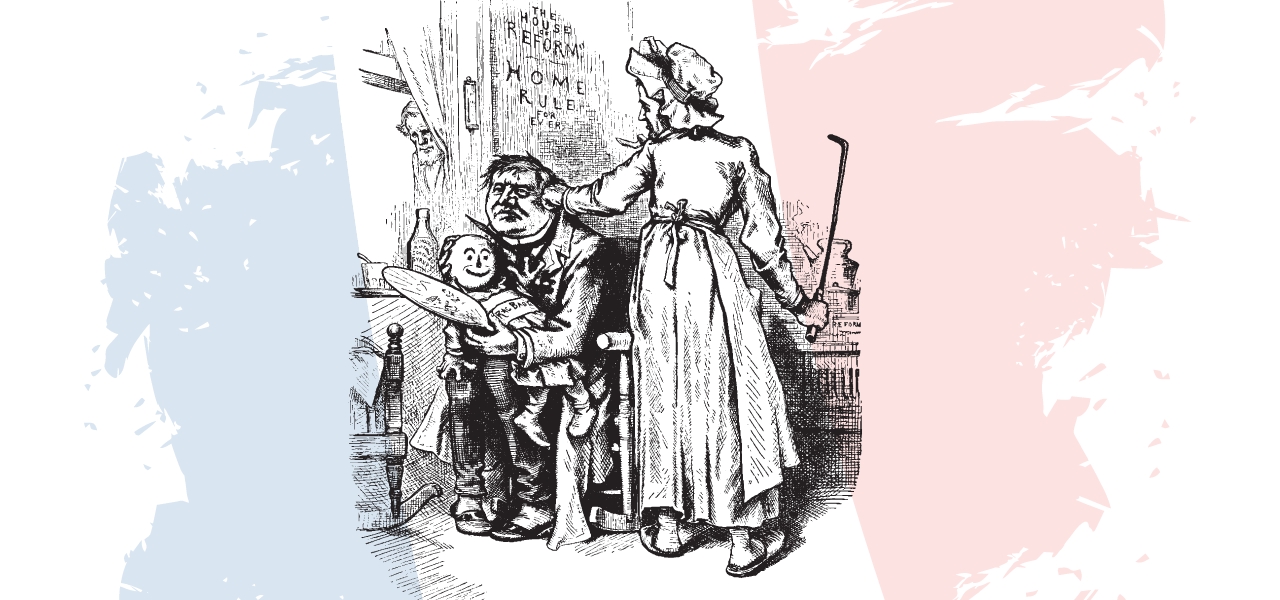By: Dewi Raudlatul Jannah
Ubi tu Gaius, ibi ego Gaia, wives in the ancient Roman era often expressed and believed this sentence as something absolute. It literally means “Where you are Gaius, there I am Gaia“. Gaius means master and Gaia is the goddess of the earth (land), symbolizing acceptance and obedience for women (wives) towards their husbands.
Plutarque interprets this as the division of power in the husband-wife relationship, that the man has authority as master and the woman as mistress. In reality, the term mistress is just an illusion created by patriarchs to make women housewives. A Latin expert, Darcos interprets this as “you are the master, I am the land, you are the power, I am the servant”.
If we go back in the history of patriarchy, we will find awe and fear intertwined in the male body. This awe and fear originates from female bodies, namely the womb. A female body can give birth to two different sexes, male and female. Awareness that men cannot seize, do not own, and that he was born from the womb of a woman, the body of the source of life, the body of the owner of human civilization. In this era, the six axes of the male system rotate.
Women’s bodies are only controlled to become bodies that conceive and give birth for the sake of civilization, regulating what can and cannot be done, revoking ownership of the body, taking away women’s rights to the body, this axis revolves around life. Hatred of women comes from fear, fear comes from awe of the owner of the womb.
Before the scientific era, our ancestors saw the womb as a supernatural being that inhabited a woman’s body which could produce living creatures, a separate entity from the woman’s body. Several ancient philosophers also expressed negative perspectives about the womb.
Hipocrates, for example, saw that the womb was a concave organ with a mouth that was able to move from one part of the body to another, in the legs, thighs, head and so on. He added that the womb is an animal that will affect the psychological condition and health condition of its owner.
A similar view was also held by the philosopher Plato. Every woman keeps an animal inside her body, specifically in the lower part of her stomach which is flexible and moves within the body. This animal will cause bad physical and psychological conditions and will give rise to many types of diseases. The womb is an animal that thirsts for sexual satisfaction, added Plato.
Claudius Galenus and Soranus expressed a different opinion, they considered that the moving womb was just a myth. It is not the womb that causes disease and other conditions but rather the narrowing or tightness of the womb (suffocation de matrice). Women’s ownership of the womb is the beginning of wonder.
The mistress is an illusion created by the patriarchal system due to the division of power. Domestic tasks are attributed to women’s duties, and vice versa. For working women in France, the salary which is the reward for the women’s hard work goes into men’s bank accounts, because only men are allowed to open accounts.
To reap the rewards of her own hard work, women still need their husband’s authority. Japanese sociologist Chizuko Ueno believes that women always lose out in access to the world of work. Women’s choices are to give up on the idea of working and having a career, employing other people for domestic duties, or the most bitter thing is ending up having to combine domestic duties and work duties (double burdens). A wife for a Japanese man is a substitute for a mother, and a mother will do anything and sacrifice everything.
Even though the phrase “head of the family” was formally outlawed in France in 1970, men are still frequently viewed by society as heads, leaders, entitled individuals, and owners. The terms “head of family” and “housewife” are included in the collective unconscious, indicating that it takes time for efforts to promote equality to be implemented and acknowledged in both the system and in society.
The Marriage Law, article 31, paragraph 3, defines the terms “head of family” for men and “housewife” for women in Indonesia. Men are strongly associated with the term “head,” while women must struggle a lot to be granted that title. It seems as though the institution of marriage was exclusively established to legitimize the male lineage. []
This article was translated by Napol Riel.
